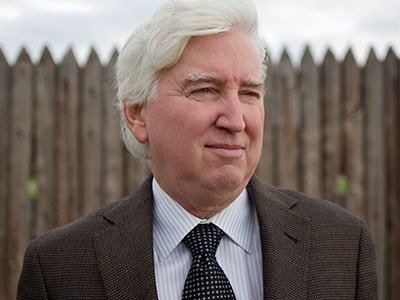The Ontario’s government’s handling of the Ring of Fire has been a “mismanaged file,” according to a Toronto lawyer, author and strategist specializing in mining and First Nations negotiations.
Bill Gallagher didn’t come away impressed with this week’s announcement by the Wynne government to pledge $1 billion toward its fledgling Ring of Fire development corporation, calling the province largely “missing in action” for the last five years.
With the provincial budget reveal only days away, he said political optics were obviously at play in the April 28 funding announcement.
“It comes very late in the day where the track record would point to a fairly inept political handling of the Ring of Fire,” said Gallagher, a former federal negotiator at the director-general level in the resources sector.
With last fall’s stop-work decision by Cliffs Natural Resources in the Ring of Fire, various mining-related legal actions underway, and uncertainty over how the entire mining camp will come together, Gallagher isn’t convinced that a billion-dollar promise will expedite any real development progress in the Far North, which he sees as being 10 years away.
“They have a funny way of saying they’re open for business with the Ring of Fire Secretariat who has been missing in action throughout the entire saga. They have a newly minted development corporation, which was announced to head off the Cliffs departure, that’s been rushed out the door without the terms of reference or a go-forward mandate.”
Gallagher said Monday’s funding announcement by Northern Development and Mines Minister Michael Gravelle and two cabinet ministers was largely directed at pressuring Ottawa to provide matching dollars, an approach that isn’t likely to produce positive results any time soon.
“I can tell you the feds, no matter what political stripe, do not cut cheques on major provincial infrastructure plays as long as matters are in the courts and Native issues are not settled.”
Cliffs Natural Resources, the Ring of Fire’s former marquee player, is going to court in June to appeal a decision by a provincial lands tribunal that denied it access to the Black Thor chromite deposit atop the mining claims of a rival company.
The Ohio miner decided to shut down all exploration work last fall, citing unresolved infrastructure issues with the province among other related risks in advancing its project.
Gallagher said there are other companies in Northern Ontario that are suing over access issues, and the lack of a detailed infrastructure plan is a non-starter with Ottawa as well.
“It’s the litigation that has caused so many problems for Ontario.”
After the Wynne government announced last November it was establishing a Ring of Fire development corporation, it decided to contract the organization-building exercise to Deloitte Canada.
The corporation, said to be constituted of industry, First Nation and government stakeholders, was formulated to help set the course to build mining and community-related infrastructure in the James Bay region. But no further details have been made public.
Gallagher said Queen’s Park has the in-house expertise in the various ministries with a history of building provincial infrastructure, “but that’s not the way they’re choosing to do it this time.”
With Ontario’s deficit forecasted to balloon past $11 billion this next fiscal year, Gallagher suspects the province hasn’t fully thought out how it intends to pay for infrastructure. But the challenge is there for Opposition parties to support the budget or be accused of stalling the Ring of Fire project.
If he points to one critical provincial success, it is the March 26 agreement with the nine chiefs of the Matawa First Nations on a regional framework agreement to give Aboriginal people a greater say on how the Ring will be developed, the environmental safeguards to be put in place, and how the area communities will benefit.
Gallagher said it is far from anything resembling a comprehensive upgrade to existing treaties.
“It’s not much more than an index to go forward,” but “that’s better than what they had before.”
After Cliffs folded up shop, Gallagher said the government’s new best move was to frame the discussion along the lines of treaty empowerment, which the Matawa agreement exemplifies.
“Getting that (agreement) lined up is a necessary first step. I’m not detracting from any of that,” said Gallagher. “Progress in the Ring of Fire requires a high degree of political statesmanship.”
But Gallagher said they’ll have to make significantly more progress on Native issues, including fully engaging the larger Nishnawbe Aski Nation.
He wishes the province could have demonstrated more leadership over the last few years to maximize the potential during a window of opportunity.
Up until the Matawa framework agreement, “the Ring of Fire has been nothing more than a hot potato.”
Gallagher said most of the project’s mismanagement was done under the McGuinty government and it’s left Premier Kathleen Wynne to pick up the pieces.
“I’m prepared to give Northern MPPs some slack. They didn’t have the numbers and clout (around the cabinet table) to get the right thing done while the window of opportunity still existed for a serious Ring of Fire project.
“The goal now is to re-create a window of opportunity to entice the key players back and get them all moving in the same direction.”




